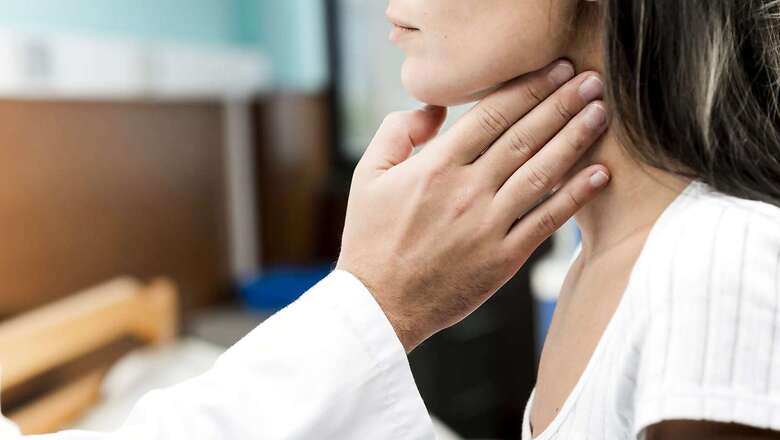
views
Every year, the month of January is celebrated as Thyroid Awareness Month. The thyroid, a butterfly-shaped gland at the front of the neck, is responsible for producing vital hormones for our health and well-being. Thyroid disease can result from the thyroid gland producing too little or too much of the hormones. Although anyone can develop thyroid problems, women are more prone to thyroid related conditions compared to men.
As per a report in Hindustan Times, Dr Himani Indeewar, MBBS, MS – ENT at Pristyn Care, revealed, “Women are 5 to 8 times more likely than men to have a thyroid disorder. This can affect a woman of any age, but women who recently gave birth, or are undergoing menopause, aged 60 and above are more prone.”
The main functional diseases are hypothyroidism, which means there is less thyroid hormone in the body, and hyperthyroidism, which means there is more hormone in the body. These diseases occur when the amount of hormones in the body decrease or increase for unknown reasons.
Symptoms of Hypothyroidism
You might not be aware that your thyroid is the cause of these changes until more symptoms start to develop. For instance, these could include scaly, rough, and dry skin and brittle nails linked to hypothyroidism. The most typical hypothyroidism warning signs and symptoms, according to Healthline, are generally as follows:
• fatigue
• depression
• constipation
• weight gain
• decreased sweating
• feeling cold
• slowed heart rate
• dry skin
• muscle stiffness, aches, and tenderness
• elevated blood cholesterol
• dry, thinning hair
• impaired memory
• muscle weakness
• pain and stiffness in your joints
The majority of people experience a slow progression of symptoms over many years. The signs may be easier to spot when the thyroid slows down more and more. Naturally, many of these symptoms also increase in frequency with the age.
If you are having any of these symptoms or suspect to have thyroid conditions, talk with your doctor. They can order a blood test to determine whether you have thyroid disorder.
Read all the Latest Lifestyle News here



















Comments
0 comment